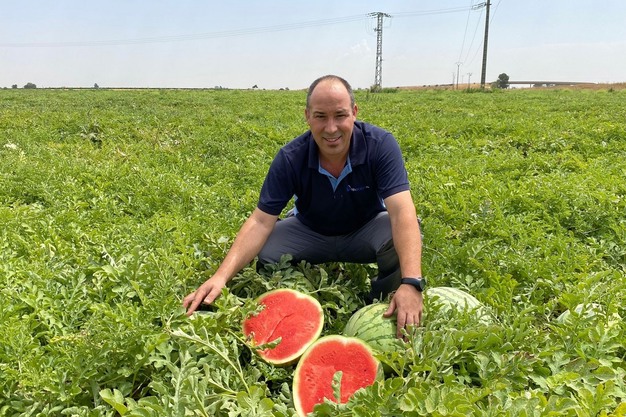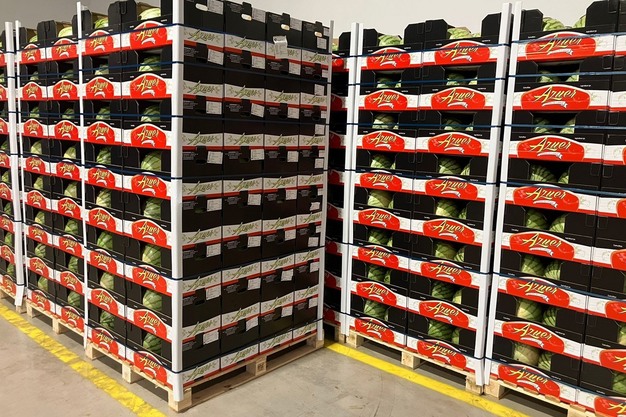A month has passed since the start of the melon and watermelon season in the Spanish region of La Mancha, and, for the time being, prices remain below the production costs. Various factors have come together to prolong this disadvantageous situation.
"There has been an overlap with other growing areas in Spain. At the same time, demand in Europe has been lower. Now it is increasing, but we are still in a difficult position. The season won't end until late September, so I am hoping the campaign can still be salvaged. Overlapping, overproduction, and the lack of heat in Europe are behind a disastrous season," says Agustín Borja, Sales Manager for AgroBorja, a La Mancha-based company which produces 20 million kilos of watermelon, Piel de Sapo, and Yellow melon, and pumpkins on 290 hectares.
 © AgroBorja
© AgroBorja
Overlapping with other regions is also behind this poor season. "La Mancha has started approximately one week early this year, and that production hasn't been profitable because it was harvested at the same time as the fruit from Murcia and Cordoba, which started later due to the spring rains."
According to the manager, "a lot has been planted, but the market only needs a certain amount, no more. To top it off, the solar radiation and heat of the last few weeks have not done any good, as the fruit in the field was already ripe."
Borja also says that, "in Europe, we experienced some high temperatures at the beginning of the summer, but that hasn't been the case for weeks. Moreover, there has been rain, and watermelon is a product that is consumed when it is hot, so this large amount of fruit has remained in the field, as there were no orders."
Watermelon prices at the source stand "between 12 and 14 cents, and Piel de Sapo melons cost almost the same. The production cost of watermelons amounts to between 16 and 18 cents, and for melons, between 18 and 20 cents, so we are a long way from covering them," says the manager.
 © AgroBorja
© AgroBorja
Demand vs. production
"We are perhaps saying that there isn't much demand, and what is happening is that there is too much production. Everyone will have to draw their own conclusions. Some say that we have to plan better; others say that the most negative factor has been the lack of heat in Europe, but I think that it's normal for temperatures not to be that high in those countries," says Borja.
"Something worth recalling," according to the manager, "is that we have to grow an excellent product, because that will always have better chances than a mediocre one. There are good melons and watermelons in many regions of Spain, not only here; we will have to look calmly into what has happened and think about how to prevent it."
"You can't blame anyone, it is more useful to stop and think about how to prevent it for next year. In the agricultural sector, you can have just a little profit one year and none in the next," says Borja.
"As for us, we are coping, but there are growers who are going to have a very bad time. Not only are they going to receive very little for their fruit, but entire melon and watermelon fields are going to go unharvested," says Borja.
For more information:
Agustín Borja
Sales Manager
AgroBorja
Tel.: +34 620 72 97 47
http://agroborjasl.com
